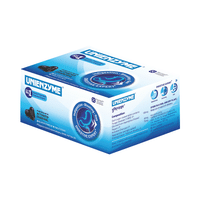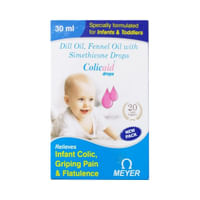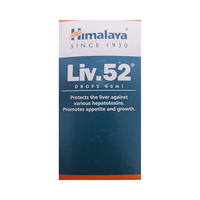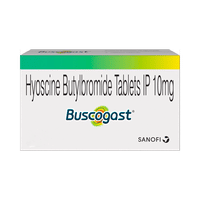Rs.53.30for 1 strip(s) (10 capsules each)
food interaction for Lanex D
alcohol interaction for Lanex D
pregnancy interaction for Lanex D
lactation interaction for Lanex D
food
alcohol
pregnancy
lactation
Lanex D 10mg/30mg Capsule is to be taken empty stomach.
Take Lanex D 10mg/30mg Capsule 30 minutes before food.
None
Take Lanex D 10mg/30mg Capsule 30 minutes before food.
None
CAUTION
Caution is advised when consuming alcohol with Lanex D 10mg/30mg Capsule. Please consult your doctor.
CAUTION
Lanex D 10mg/30mg Capsule may be unsafe to use during pregnancy. Although there are limited studies in humans, animal studies have shown harmful effects on the developing baby. Your doctor will weigh the benefits and any potential risks before prescribing it to you. Please consult your doctor.
CONSULT YOUR DOCTOR
Lanex D 10mg/30mg Capsule is probably safe to use during breastfeeding. Limited human data suggests that the drug does not represent any significant risk to the baby.
SAFE IF PRESCRIBED
SALT INFORMATION FOR Lanex D
Domperidone(10mg)
Uses
How it works
Domperidone is a prokinetic. It works on the region in the brain that controls vomiting. It also acts on the upper digestive tract to increase the movement of the stomach and intestines, allowing food to move more easily through the stomach.
Common side effects
Headache, Dryness in mouth, Diarrhea, Rash, Sleepiness, Agitation, Breast pain, Anxiety, Breast tenderness, Loss of libido, Itching, Unusual production of breast milk in women and men, Weakness, Anaphylactic reaction, Convulsion, Nervousness, Extrapyramidal symptoms, Ventricular arrhythmia, Angioedema (swelling of deeper layers of skin), Urinary retention, Abnormal liver function tests, Increased prolactin level in blood
Lansoprazole(30mg)
Uses
Lansoprazole is used in the treatment of acidity, gastroesophageal reflux disease (acid reflux) and peptic ulcer disease.
How it works
Lansoprazole is a proton pump inhibitor (PPI). It works by reducing the amount of acid in the stomach which helps in relief of acid related indigestion and heartburn.
Common side effects
Nausea, Headache, Flatulence, Diarrhea, Abdominal pain, Constipation, Dizziness, Dryness in mouth, Anemia (low number of red blood cells), Anxiety, Muscle pain, Angina, Acute tubulointerstitial nephritis, Clostridium difficile associated diarrhea, Bone fracture, Cutaneous lupus erythematosus, Systemic lupus erythematosus, Vitamin B12 deficiency, Fundic gland polyps, Decreased magnesium level in blood
SUBSTITUTES FOR Lanex D
26 Substitutes
26 Substitutes
Sorted By
 Rs. 64.90pay 18% more per Capsule
Rs. 64.90pay 18% more per Capsule Rs. 106.05pay 93% more per Capsule
Rs. 106.05pay 93% more per Capsule Rs. 78.95pay 44% more per Capsule
Rs. 78.95pay 44% more per Capsule Rs. 55same price
Rs. 55same price Rs. 50save 9% more per Capsule
Rs. 50save 9% more per Capsule
Expert advice FOR Lanex D
- Domperidone helps relieve nausea, vomiting, and indigestion.
- It should be taken before meals as per the dose and duration prescribed by your doctor.
- It may cause dizziness and sleepiness. Do not drive or do anything that requires mental focus until you know how it affects you.
- Avoid consuming alcohol when taking Domperidone as it may cause excessive drowsiness.
- Dry mouth may occur as a side effect. Frequent mouth rinses, good oral hygiene, increased water intake and sugarless candy may help.
- Inform your doctor if you get watery diarrhea, fever, or stomach pain that does not go away.
- Do not take it for longer than 7 days without consulting your doctor.
Frequently asked questions FOR Lanex D
Domperidone
Q. What is Domperidone used for?
Domperidone is used for the treatment of nausea (feeling sick) and vomiting as and when recommended by your doctor.
Q. Is Domperidone an over the counter drug?
Domperidone is not an over-the-counter (OTC) medicine and it is not advisable to take it without a prescription.
Q. Does Domperidone cause weight gain?
Weight gain has not been reported with the use of Domperidone. If you notice any abnormal weight gain while using Domperidone, please talk to your doctor.
Lansoprazole
Q. What is Lansoprazole? What is it used for?
Lansoprazole belongs to a class of medicines known as proton pump inhibitors. Lansoprazole is used for the treatment of peptic ulcer disease (gastric and duodenal ulcers), reflux esophagitis or gastroesophageal reflux disease (GERD). It is also used to treat a disease associated with excessive acid production in the stomach known as Zollinger Ellison syndrome (ZES). It works by reducing the amount of acid made by your stomach.
Q. What are the long term side effects of Lansoprazole?
If Lansoprazole is used for more than 3 months, certain long term side effects may be seen. The most important of these is low magnesium levels in your blood which may make you feel tired, confused, dizzy, shaky or dizzy. You may also have muscle twitches or irregular heartbeat. If the use is further prolonged for more than a year, you may have an increased risk of bone fractures (due to decreased calcium levels in the blood), especially hip, wrist or spine, stomach infections and vitamin B12 deficiency. Vitamin B12 deficiency can make you anemic, as a result of which you may feel more tired, weak, or pale. Additionally you may also have palpitations, shortness of breath, lightheadedness, indigestion, loss of appetite, flatulence (gas) or nerve problems such as numbness, tingling and problem in walking.
Q. How is Lansoprazole given through the nasogastric tube?
Your doctor or nurse will show you the correct way of giving Lansoprazole through the nasogastric (NG) tube. Open the Lansoprazole capsule and empty the granules into a syringe. Mix the contents with apple juice in the syringe and attach it to the NG tube and give directly into the stomach. Once given, flush the NG tube with more apple juice to clear the tube.























